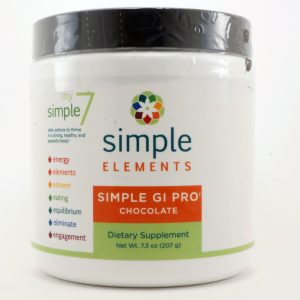Dr. Durland’s philosophy accentuates the power of the human body and its mission to protect us from the day we are born until the day we die. Over the course of human evolution, our bodies adapted to help us survive. When we perceived a threat, such as a predator, our body released hormones. Oxygenated blood was delivered to our major muscle groups to prepare to run away. The response is known as the fight-or-flight response. Our fight-or-flight response helped us survive when predators threatened our existence. Although we are no longer living in caves and outrunning predators, the same fight-or-flight response is triggered by a multitude of daily stressors in our new world (think traffic jams, exams, losing your phone).
Our body also responded to more prolonged stressors, like a drought that jeopardized our food supply. Our body’s mission transitions to tapping into energy banks to help us survive each day, rather than function normally. Today, we experience these prolonged stressors in the form of emotional and environmental stressors like mourning the loss of a loved one or mourning the loss of a home after a tragedy.
One effect of our body’s response to stress is inflammation. Inflammation occurs when our immune system aims to destroy a foreign and potentially damaging stimuli. There are two types of inflammation – acute inflammation and chronic inflammation. Acute inflammation occurs when our skin gets cut or when we have a sore throat and our body fights off infection. Normally, this preventative inflammation will only last a few days. Chronic inflammation is long-term and becomes problematic to healthy tissues in the body. Our immune system becomes overworked and can result in diseases such as diabetes or heart disease. Did you know 75%–90% of human diseases is linked to the overuse of our stress system?
Symptoms of chronic inflammation include:
- Body pain
- Constant fatigue and insomnia
- Depression, anxiety and mood disorders
- Gastrointestinal complications like constipation, diarrhea, and acid reflux
- Weight gain
- Frequent infections
There are multiple risk factors linked to chronic inflammation, some of which are under our control with a balanced diet, regular physical activity, and restful sleep. However, as we age, free radicals begin to cause oxidative damage, and our cells’ powerhouses (the mighty mitochondria) become inefficient. Sex hormone levels fluctuate, such as testosterone and estrogen, and can increase the likelihood of inflammatory diseases.
How to Reduce and Manage Inflammation
1) Make Dietary Adjustments. Consuming a high amount of trans fats, sugar, processed carbohydrates, hydrogenated oils, and hydrogenated oils is linked to inflammation. Alternatively, whole grains, fresh fruits & vegetables (avocadoes, fish, cherries, kale) help to fight inflammation. There are a variety of supplements that can help reduce and manage inflammation also. Here are some Simple Elements that can help reduce inflammation.
2) Increase Quality Sleep. Try to get between 6-8 hours of restful sleep each night. While we sleep our body is able to repair damage to tissue and restore hormone levels.
3) Develop a Regular Exercise Regimen. Find an exercise that incorporates diverse and compound movements. Exercise that helps lower body fat and increase muscle mass will decrease your risk for diseases related to chronic inflammation.
4) Try Yoga or Meditation Practices. Yoga and meditation provide you with the tools to manage the physiological symptoms of stress. Techniques such as deep breathing can help reduce heart rate and lower your blood pressure.
Just remember, you are not alone in this journey and Simple Wellness can help you strengthen your amazing body and mind. Your body’s first response is to protect you. Sometimes your body just needs help remembering how to respond to stress. Blood work can help tell us how to help your body. As always, we listen to what your body is telling us and work to fix it. It really is that simple. Contact our office to schedule an appointment and we will help you thrive in a strong, healthy and peaceful body.
Sources
Liu, Y. Z., Wang, Y. X., & Jiang, C. L. (2017). Inflammation: The Common Pathway of Stress-Related Diseases. Frontiers in human neuroscience, 11, 316. doi:10.3389/fnhum.2017.00316
Pahwa R, Jialal I. Chronic Inflammation. [Updated 2019 Jun 4]. In: StatPearls [Internet]. Treasure Island (FL): StatPearls Publishing; 2019 Jan-. Available from: https://www.ncbi.nlm.nih.gov/books/NBK493173/
https://www.roswellpark.org/sites/default/files/thanavala_2-23-17_mir_508_adv_immunol_yt_inflammation_2017.pdf
___
 Dr. Lauren Easton is a Doctor of Philosophy, Health and Psychology of Physical Activity from the University of Kansas. She also holds a Ed.S. in Counseling and a Master’s of Science in Kinesiology- Sport Psychology from Georgia Southern University. Dr. Easton areas of specialty include goal orientations, optimizing experiences with physical activity + nutrition, exercise psychology, goal-setting plans, and strategies for health-related behavior changes. Dr. Easton is a key component to the Simple Weight Loss Program, assisting patients in experiencing growth throughout the weight loss process and maximizing their experience in physical activity, nutrition, and other health-related behaviors. Dr. Easton also leads the Simple Wednesday Walking Group every week starting at 7am in the Simple Wellness parking lot.
Dr. Lauren Easton is a Doctor of Philosophy, Health and Psychology of Physical Activity from the University of Kansas. She also holds a Ed.S. in Counseling and a Master’s of Science in Kinesiology- Sport Psychology from Georgia Southern University. Dr. Easton areas of specialty include goal orientations, optimizing experiences with physical activity + nutrition, exercise psychology, goal-setting plans, and strategies for health-related behavior changes. Dr. Easton is a key component to the Simple Weight Loss Program, assisting patients in experiencing growth throughout the weight loss process and maximizing their experience in physical activity, nutrition, and other health-related behaviors. Dr. Easton also leads the Simple Wednesday Walking Group every week starting at 7am in the Simple Wellness parking lot.



